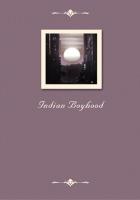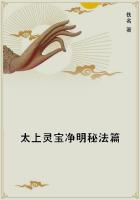But after lunch we shall go up the hillside to where the theatre stands, at the edge of the pine-woods, and from the porch the trumpets will give out the motif of the Grail, and we shall pass out of the heat into the cool darkness of the theatre. Aren't you thrilled, Comber? Doesn't a holy awe pervade you! Are you worthy, do you think?"All this youthful, unrestrained enthusiasm was a revelation to Michael. Intentionally absurd as Falbe's rhapsody on the Fatherland had been, Michael knew that it sprang from a solid sincerity which was not ashamed of expressing itself. Living, as he had always done, in the rather formal and reticent atmosphere of his class and environment, he would have thought this fervour of patriotism in an English mouth ridiculous, or, if persevered in, merely bad form. Yet when Falbe hailed the Rhine and the spires of Cologne, it was clear that there was no bad form about it at all.
He felt like that; and, indeed, as Michael was beginning to perceive, he felt with a similar intensity on all subjects about which he felt at all. There was something of the same vivid quality about Aunt Barbara, but Aunt Barbara's vividness was chiefly devoted to the hunt of the absurdities of her friends, and it was always the concretely ridiculous that she pursued. But this handsome, vital young man, with his eagerness and his welcome for the world, who had fallen with so delightful a cordiality into Michael's company, had already an attraction for him of a sort he had never felt before.
Dimly, as the days went by, he began to conjecture that he who had never had a friend was being hailed and halloed to, was being ordered, if not by precept, at any rate by example, to come out of the shell of his reserve, and let himself feel and let himself express. He could see how utterly different was Falbe's general conception and practice of life from his own; to Michael it had always been a congregation of strangers--Francis excepted--who moved about, busy with each other and with affairs that had no allure for him, and were, though not uncivil, wholly alien to him.
He was willing to grant that this alienation, this absence of comradeship which he had missed all his life, was of his own making, in so far as his shyness and sensitiveness were the cause of it; but in effect he had never yet had a friend, because he had never yet taken his shutters down, so to speak, or thrown his front door open. He had peeped out through chinks, and felt how lonely he was, but he had not given anyone a chance to get in.
Falbe, on the other hand, lived at his window, ready to hail the passer-by, even as he had hailed Michael, with cheerful words.
There he lounged in his shirt-sleeves, you might say, with elbows on the window-sill; and not from politeness, but from good fellowship, from the fact that he liked people, was at home to everybody. He liked people; there was the key to it. And Michael, however much he might be capable of liking people, had up till now given them no sign of it. It really was not their fault if they had not guessed it.
Two days passed, on the first of which Parsifal was given, and on the second Meistersinger. On the third there was no performance, and the two young men had agreed to meet in the morning and drive out of the town to a neighbouring village among the hills, and spend the day there in the woods. Michael had looked forward to this day with extraordinary pleasure, but there was mingled with it a sort of agony of apprehension that Falbe would find him a very boring companion. But the precepts of Aunt Barbara came to his mind, and he reflected that the certain and sure way of proving a bore was to be taken up with the idea that he might be. And anyhow, Falbe had proposed the plan himself.
They lunched in a little restaurant near a forest-enclosed lake, and since the day was very hot, did no more than stroll up the hill for a hundred yards, where they would get some hint of breeze, and disposed themselves at length on the carpet of pine-needles.
Through the thick boughs overhead the sunlight reached them only in specks and flakes, the wind was but as a distant sea in the branches, and Falbe rolled over on to his face, and sniffed at the aromatic leaves with the gusto with which he enjoyed all that was to him enjoyable.
"Ah; that's good, that's good!" he said. "How I love smells--clean, sharp smells like this. But they've got to be wild; you can't tame a smell and put it on your handkerchief; it takes the life out of it. Do you like smells, Comber?""I--I really never thought about it," said Michael.
"Think now, then, and tell me," said Falbe. "If you consider, you know such a lot about me, and, as a matter of fact, I know nothing whatever about you. I know you like music--I know you like blue trout, because you ate so many of them at lunch to-day. But what else do I know about you ? I don't even know what you thought of Parsifal. No, perhaps I'm wrong there, because the fact that you've never mentioned it probably shows that you couldn't. The symptom of not understanding anything about Parsifal is to talk about it, and say what a tremendous impression it has made on you.""Ah! you've guessed right there," said Michael. "I couldn't talk about it; there's nothing to say about it, except that it is Parsifal.""That's true. It becomes part of you, and you can't talk of it any more than you can talk about your elbows and your knees. It's one of the things that makes you. . . ."He turned over on to his back, and laid his hands palm uppermost over his eyes.















